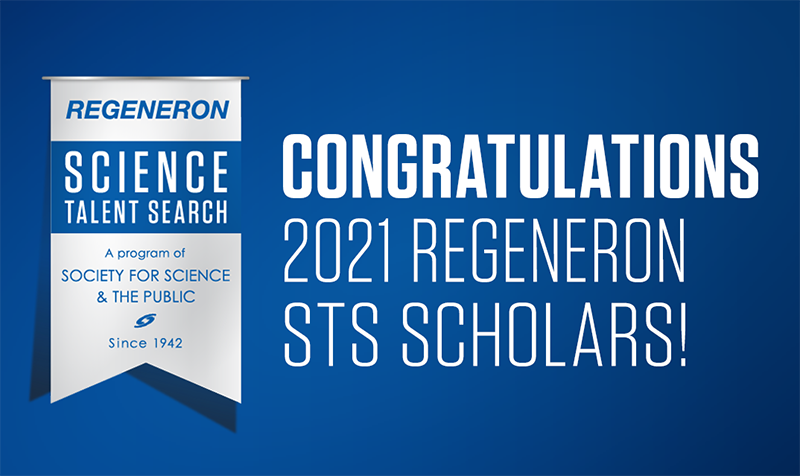NT Senior Named Top 300 Scholar
 New Trier senior Alexandra Bardas was recently named one of the top 300 Scholars in the 80th Regeneron Science Talent Search-the nation's oldest and most prestigious science and mathematics competition for high school seniors. Scholars were selected from 1,760 students who entered from 611 high schools across 45 states, Washington, D.C., Puerto Rico and 10 countries.
New Trier senior Alexandra Bardas was recently named one of the top 300 Scholars in the 80th Regeneron Science Talent Search-the nation's oldest and most prestigious science and mathematics competition for high school seniors. Scholars were selected from 1,760 students who entered from 611 high schools across 45 states, Washington, D.C., Puerto Rico and 10 countries.
Bardas' award-winning project aims to identify genes responsible for drug resistance in parasitic nematodes that cause deadly diseases and create problems for livestock and crop industries worldwide. By identifying these genes, Bardas hopes to lessen the burden of these infections in impoverished countries.
"I decided to submit my research report to the Regeneron Science Talent Search because of its remarkable reputation within the math and science community and the amazing opportunities the company offers," Bardas said. "What really drew me to the Regeneron Science Talent Search, however, was the promotion of young scientists as leading idea-creators and problem-solvers engaging with society's most pressing issues. The Regeneron Science Talent Search inspired me to think more deeply about research as a humanitarian dedication rather than strictly science itself: it pushed me to have clear goals regarding what I hope to accomplish through my work on a larger scale."
According to Bardas, parasitic nematodes, or roundworms, infect an estimated two billion people (~⅕ of the world's population) and make HIV, malaria and tuberculosis far deadlier. Along with infecting livestock in many parts of the world and ravaging food security, the burden of parasitic nematode infections disproportionately affects developing countries with limited resources and fuels the vicious cycle of disease, poverty, marginalization, poor education, and decreased economic productivity. While most anthelmintics-the class of drugs used to treat infections caused by parasitic nematodes-are old and many parasites have developed a resistance to them, Bardas says this resistance can be curbed if all genes causing resistance can be identified.
Analyzing the genes that cause resistance, Bardas used the model nematode Caenorhabditis elegans to identify candidate genes involved in resistance to the anthelmintic albendazole (ABZ). Using a quantitative genetics approach, she correlated genetic differences with differences in response to ABZ, and further analyzed the region with the greatest correlation to ABZ resistance, identifying the gip-1 (gamma tubulin interaction) gene as a candidate that increases ABZ resistance. Bardas utilized CRISPR-Cas9 technology to edit the gip-1 gene and tested if this edit impaired nematode development in ABZ, and her results implicate gip-1 in ABZ resistance.
"I plan to continue testing this gene along with several of the other 21 candidate genes I identified through my project," Bardas said. "If gip-1 or another candidate gene is confirmed to affect the response to ABZ, this knowledge can be implemented in pre-treatment screening of parasitic nematode populations to determine the right drug treatment."
Bardas first learned about parasites and their relationship to worldwide diseases in her freshman biology class with Christine Estberg at New Trier, and after doing more of her own research on the side, she came across studies from the Andersen Laboratory of Northwestern University and reached out to them for their leading research on neglected tropical diseases and anthelmintic resistance.
With an increasing awareness that stemming disease is urgent, Bardas began her project with a focus on combating anthelmintic resistance, and was mentored by Professor Erik Andersen and Dr. Janneke Wit from the Andersen Laboratory. Discovering accessible solutions to the disease cycle is critical to improve healthcare and accessibility to cures, she said.
"I wanted to challenge myself and find a way to be on the frontier of groundbreaking scientific discoveries," Bardas said, adding that her AP Physics teacher Mary Beth Barrett was very supportive with her research. "I love the exciting mental stimulus of not knowing what is going to come next and where your work will lead you. This mindset was one of the largest factors that drew me to my current research."

